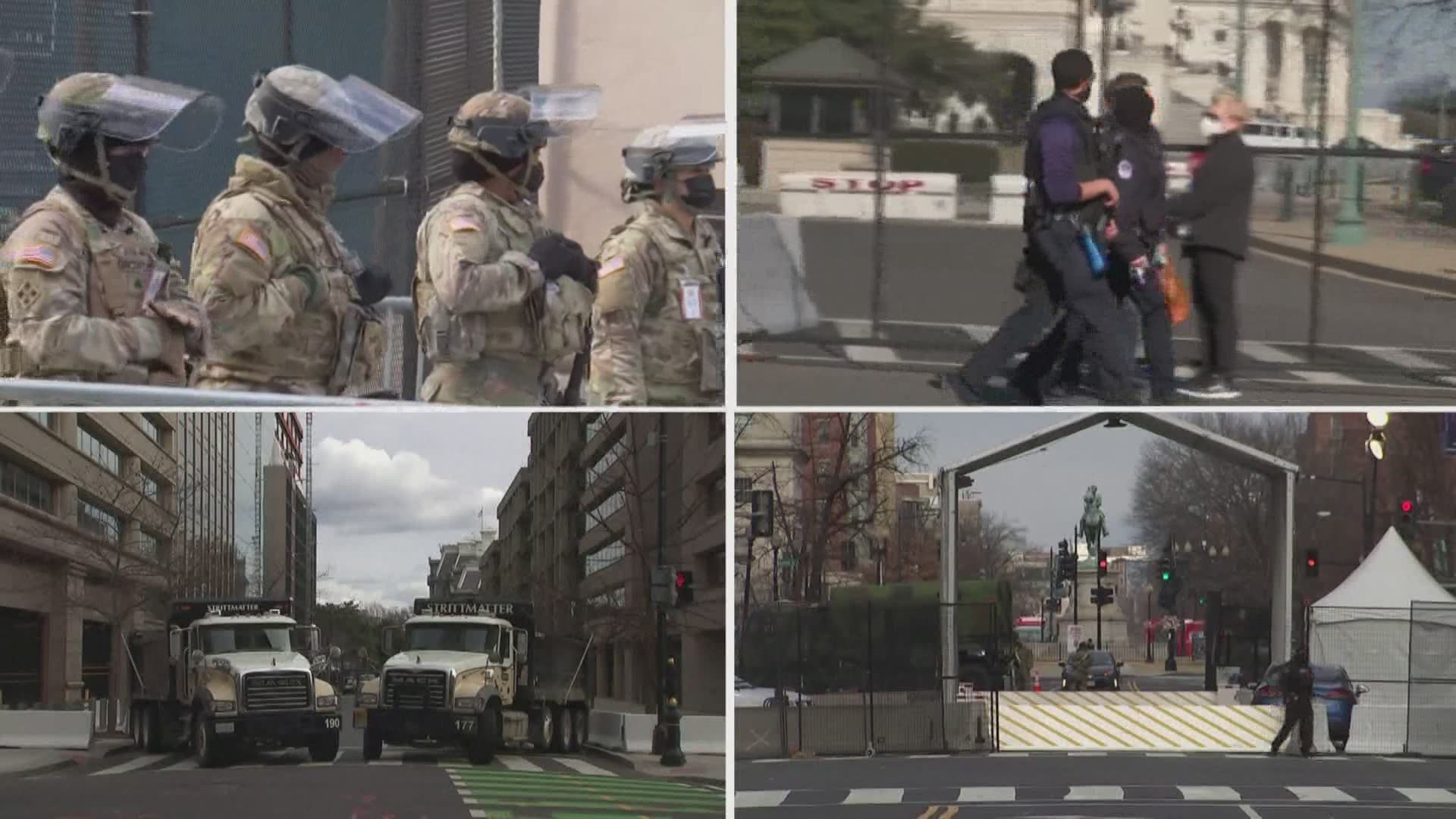AUGUSTA, Maine — Editor's Note: The above video aired on Jan. 19 ahead of the inauguration.
The Maine National Guard said Monday that approximately 75 of its members will provide support in Washington for the "next several weeks," while a majority of its original group will head home to Maine.
According to the Maine National Guard public affairs officer, Maj. Carl Lamb, about a dozen of the original 200 members who traveled to Washington for inauguration week volunteered to remain on duty. A majority of the 75 soldiers were not part of the original group sent to Washington last week. They will travel to Washington this week as the original group travels home.
"The request came in from the National Guard Bureau and we wanted to continue to support while also taking our members personal and professional lives into account," Maj. Gen. Douglas Farnham, Maine's adjutant general, said in a release Monday. "The first group was informed their orders would end near the end of the month, so we put together another group of volunteers for this extended mission. Strong employer support is so critical to what we do, so we did everything we could to honor our original commitment to that first wave's employers and families."
Approximately 7,000 total National Guardsmen will remain on duty in Washington supporting federal agencies through the end of the month, with that number coming down to around 5,000 that may remain into March.
Around 25,000 National Guard members from all across the U.S. traveled to Washington for the week of Joe Biden's inauguration in wake of the Jan. 6 insurrection at the U.S. Capitol. Federal agencies brought in support to the nation's capital for the inauguration week amid potential threats. Washington was essentially shut down, with strict security barriers in place.
Barriers started to come down and bridges began slowly reopening hours after President Joe Biden walked the streets of Washington D.C. following his inauguration ceremony on Wednesday.
With more opening up in D.C., the National Guard staying until mid-March is more precautionary than active threat alerts that were valid in the days leading up to the inauguration.

